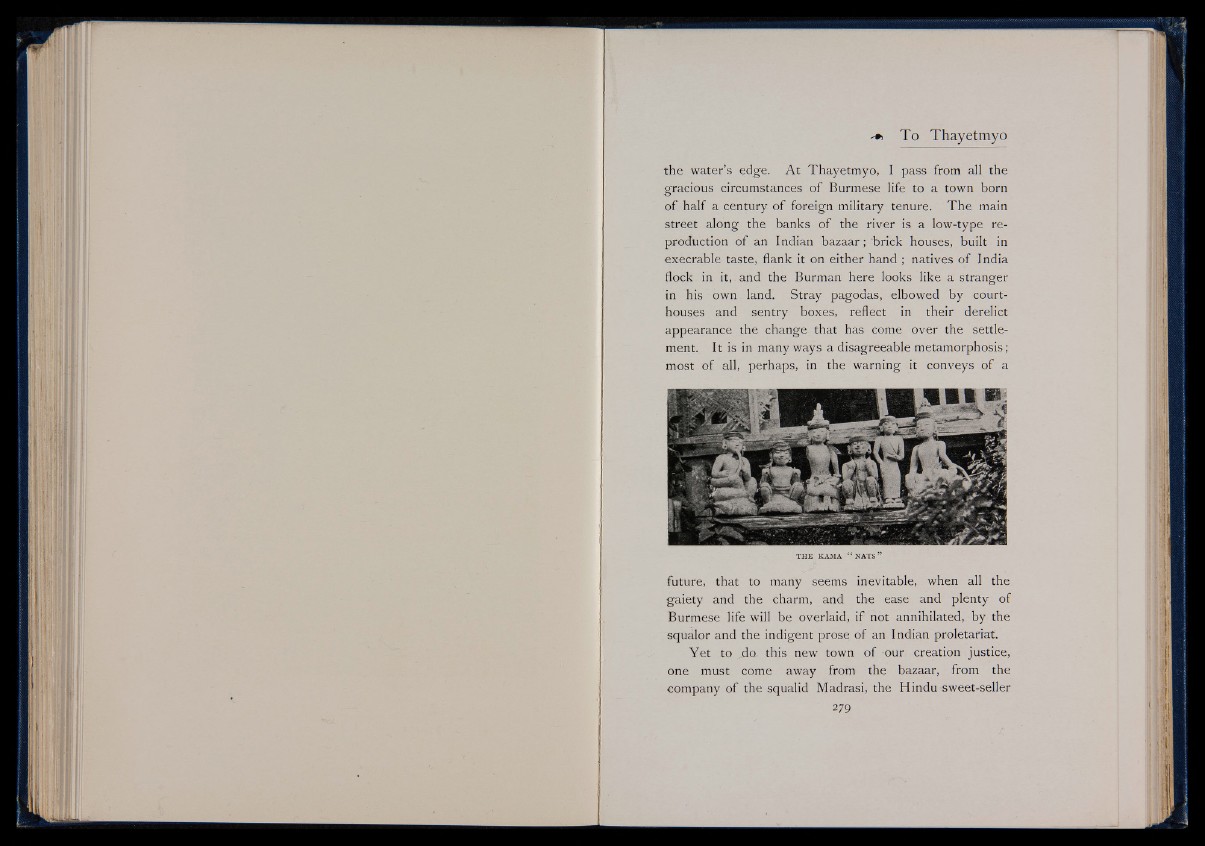
the water’s edge. At Thayetmyo, I pass from all the
gracious circumstances of Burmese life to a town born
of half a century of foreign military tenure. The main
street along the banks of the river is a low-type reproduction
of an Indian bazaar; “brick houses, built in
execrable taste, flank it on either hand ; natives of India
flock in it, and the Burman here looks like a stranger
in his own land. Stray pagodas, elbowed by court-
houses and sentry boxes, reflect in their derelict
appearance the change that has come over the settlement.
It is in many ways a disagreeable metamorphosis;
most of all, perhaps, in the warning it conveys of a
TH E K AM A “ N A TS B
future, that to many seems inevitable, when all the
gaiety and the charm, and the ease and plenty of
Burmese life will be overlaid, if not annihilated, by the
squalor and the indigent prose of an Indian proletariat.
Yet to jdo this new town of our creation justice,
one must come away from the bazaar, from the
company of the squalid Madrasi, the Hindu sweet-seller
2 79